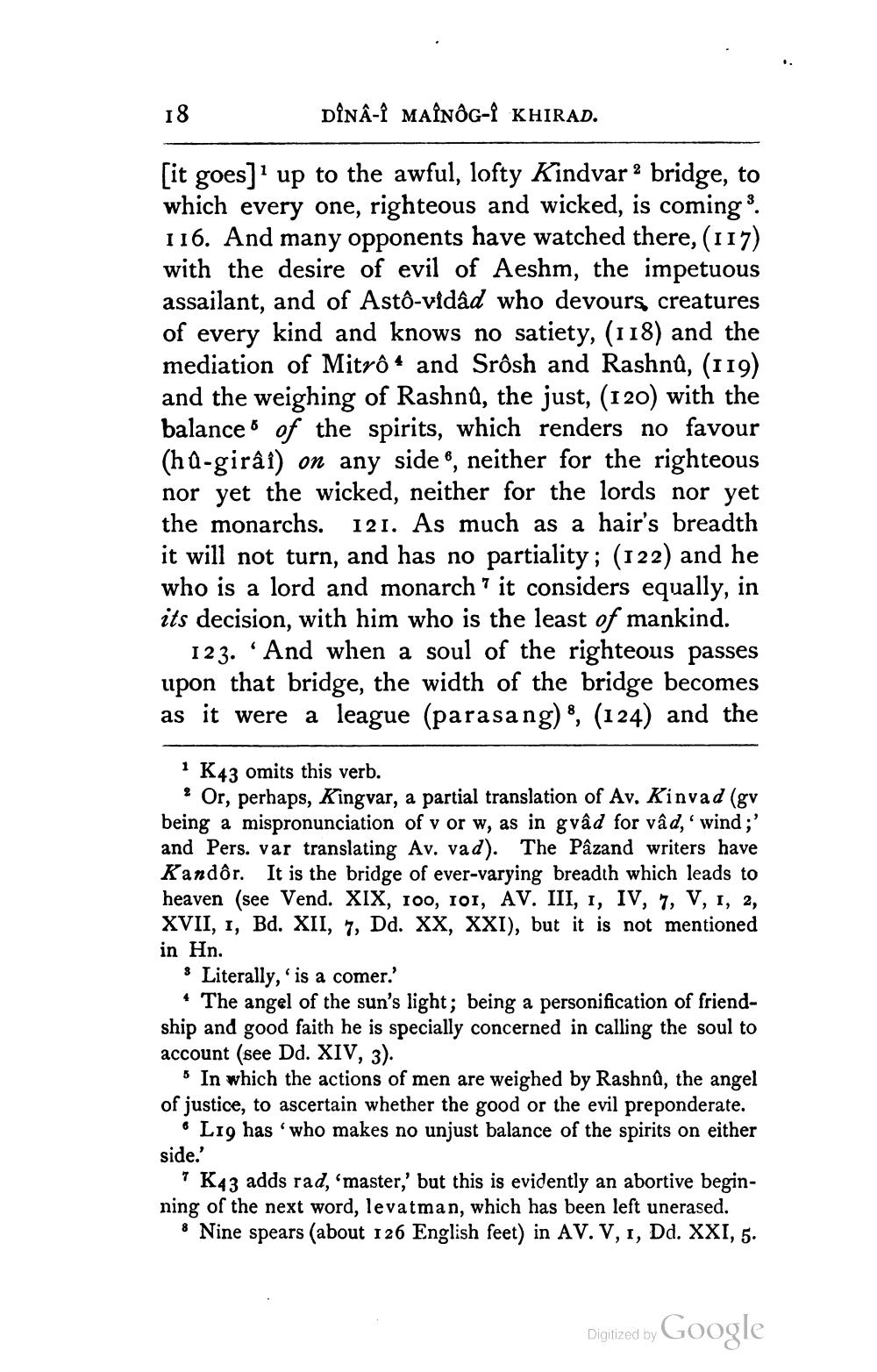________________
18
DÎNA-I MAÎNÔG-Î KHIRAD.
[it goes]' up to the awful, lofty Kindvar 2 bridge, to which every one, righteous and wicked, is coming : 116. And many opponents have watched there, (117) with the desire of evil of Aeshm, the impetuous assailant, and of Astô-vidâd who devours, creatures of every kind and knows no satiety, (118) and the mediation of Mitrô 4 and Srôsh and Rashnù, (119) and the weighing of Rashnù, the just, (120) with the balance 6 of the spirits, which renders no favour (hQ-girâi) on any side ®, neither for the righteous nor yet the wicked, neither for the lords nor yet the monarchs. 121. As much as a hair's breadth it will not turn, and has no partiality; (122) and he who is a lord and monarch? it considers equally, in its decision, with him who is the least of mankind.
123. And when a soul of the righteous passes upon that bridge, the width of the bridge becomes as it were a league (parasang) $, (124) and the
1 K43 omits this verb.
? Or, perhaps, Kingvar, a partial translation of Av. Kinvad (gv being a mispronunciation of v or w, as in gvâd for vâd,' wind;' and Pers. var translating Av. vad). The Pâzand writers have Kandôr. It is the bridge of ever-varying breadth which leads to heaven (see Vend. XIX, 100, 101, AV. III, 1, IV, 7, V, 1, 2, XVII, 1, Bd. XII, 7, Dd. XX, XXI), but it is not mentioned in Hn.
8 Literally, is a comer.'
• The angel of the sun's light; being a personification of friendship and good faith he is specially concerned in calling the soul to account (see Dd. XIV, 3).
5 In which the actions of men are weighed by Rashnù, the angel of justice, to ascertain whether the good or the evil preponderate.
o L19 has who makes no unjust balance of the spirits on either side.'
K43 adds rad, 'master,' but this is evidently an abortive beginning of the next word, levatman, which has been left unerased.
8 Nine spears (about 126 English feet) in AV. V, 1, Dd. XXI, 5.
Digitized by Google




